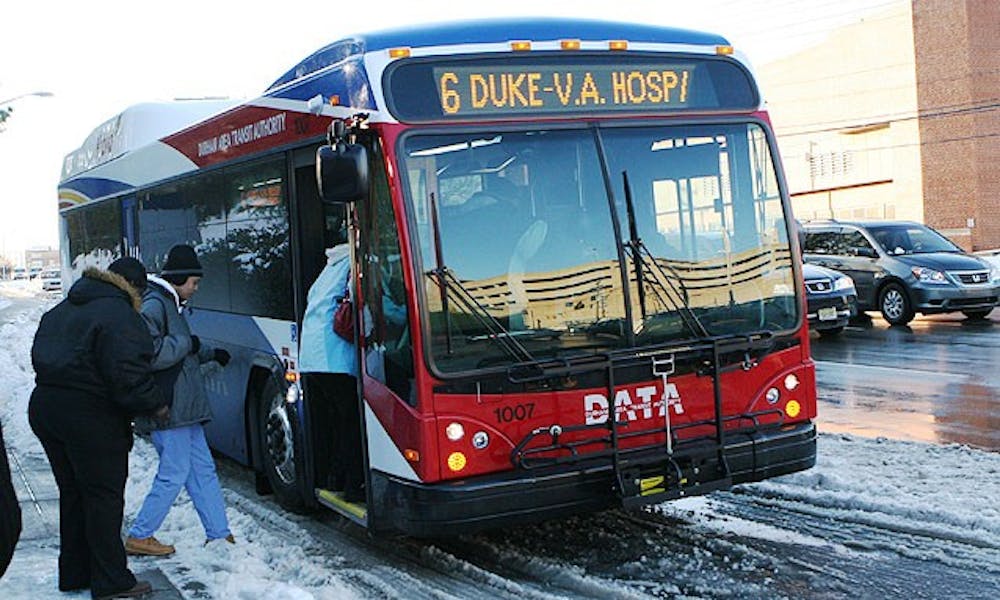They’re mean, green, more fuel-efficient machines.
The Durham Area Transit Authority debuted 20 diesel-electric hybrid buses last December. The buses—which feature advanced wheelchair accessibility, audio instructions for the visually impaired and a funky color scheme voted on by city residents—have been deployed on various DATA routes, and are estimated to be 20 to 45 percent more fuel-efficient than regular diesel buses, according to a December 2009 City of Durham news release.
“All of the feedback that we’ve received from passengers as well as our operators has been positive,” said DATA Public Affairs Specialist Ieshia Robertson. “The city has made a decision that any buses we order in the future will be hybrid buses.”
Initial projections indicate that the buses—which cost $10.7 million—are expected to return the investment through savings on fuel and maintenance costs within eight to 10 years, Robertson added.
The savings figures, however, depend on how the buses are utilized. For example, the buses are more efficient in stop-and-go traffic since the hybrid technology recaptures heat released by the brakes.
Federal funding provided $8.5 million of the buses’ costs. The North Carolina Department of Transportation and the city of Durham contributed $1.1 million each.
“These buses are kept for 12 to 14 years, so the payback for the cost premium is certainly effective,” said Brian Macleod, senior vice president of the Gillig corporation, which produces the hybrid buses.
Not every implementation of hybrid buses has gone smoothly. In October 2008, the Toronto Transit Commission reevaluated its hybrid program partly because new hybrid bus models did not follow through on projected savings.
Toronto city officials attributed the problem to malfunction of the buses’ lead-acid batteries but, according to a news story in the Toronto Star, there has been speculation that the city’s suburban bus routes weren’t suitable for hybrids.
“We did have problems with the issue of the batteries dying much sooner than we expected,” said Danny Nicholson, a spokesperson for the TTC. “The batteries were supposed to last about 5 years and a lot of them were breaking down after about 18 months.”
After the Toronto city buses were retrofitted with new lithium-ion batteries, they have performed up to expectations, Nicholson added.
North Carolina state officials said they are optimistic about the new Gillig buses, which use nickel-metal hydride batteries.
“We are definitely seeing a trend in moving toward these types of buses in North Carolina,” Jennifer Garifo, communications officer for the North Carolina Department of Transportation, wrote in an e-mail. “We’ve received positive feedback from the systems that have incorporated these buses into their fleets. They’re showing reduced fuel costs and longer life.”
Get The Chronicle straight to your inbox
Signup for our weekly newsletter. Cancel at any time.

